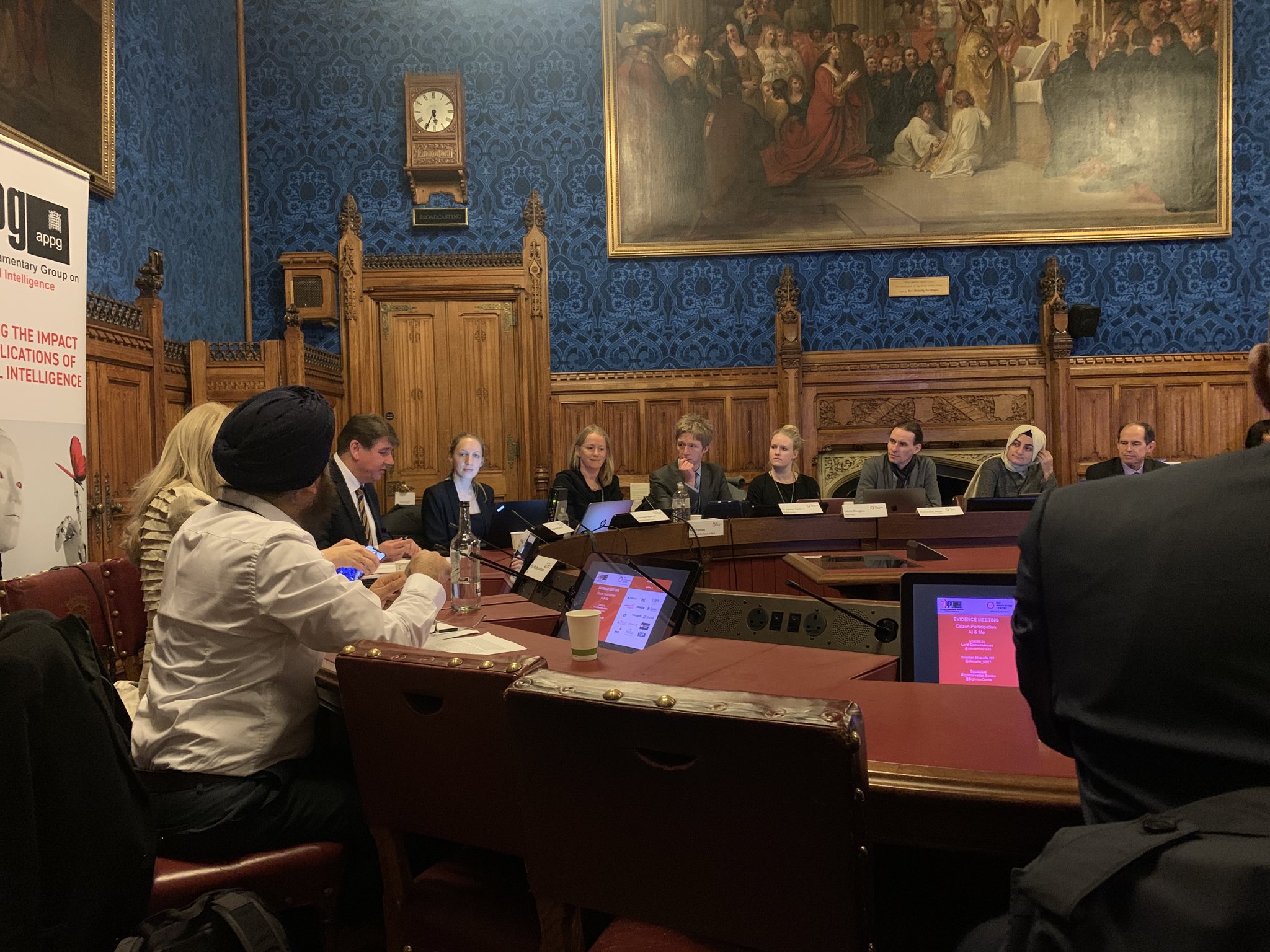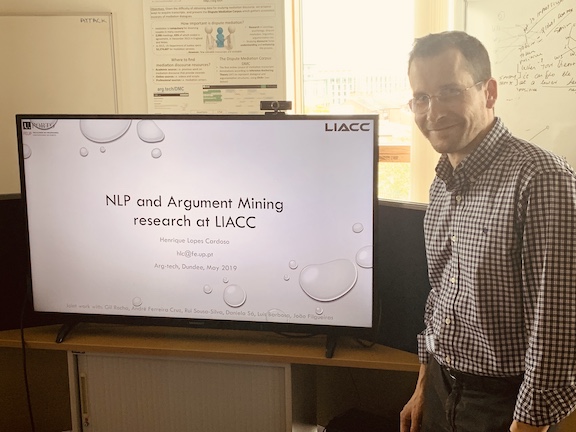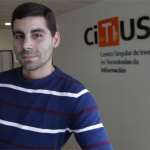
Chris was today giving evidence at the All Party Parliamentary Group on AI at the House of Lords. The focus of his contribution was on the reality of AI’s competence and the great distance that remains before AGI is imminent.

Chris was today giving evidence at the All Party Parliamentary Group on AI at the House of Lords. The focus of his contribution was on the reality of AI’s competence and the great distance that remains before AGI is imminent.

Henrique Lopes Cardoso is visiting us this week from the University of Porto Dept of Informatics Engineering to develop our collaboration around argument mining. He today gave us a short introduction to the exciting work at Porto on argument mining and related themes and will be working over the coming ten days with IAT and our infrastructure, and meeting with members of the team.

This week we have two visitors to the Centre. Nuria Franco-Guillen from Griffith University is visiting all week and is giving a seminar on Thursday morning at our regular ARGi session (10am in the ARG lab). She works with John Parkinson at Griffith on a project tracking the national conversation around key political issues and they are interested in using some of our argument mining techniques to process very large data sets.
 On Friday we are joined by Alejando Ramos Soto from the University of Santiago de Compostela and currently a visiting researcher at the University of Aberdeen. Following our work delivering analytics for the BBC, Alejandro is here to work on the connection between Natural Language Generation Techniques and debate analytics. He’ll be giving a talk in the ARG lab at 11.30 on Friday.
On Friday we are joined by Alejando Ramos Soto from the University of Santiago de Compostela and currently a visiting researcher at the University of Aberdeen. Following our work delivering analytics for the BBC, Alejandro is here to work on the connection between Natural Language Generation Techniques and debate analytics. He’ll be giving a talk in the ARG lab at 11.30 on Friday.
A stimulating week!

We’re delighted to welcome Prof. Randy Harris from the University of Waterloo who is co-leading one of the foremost groups in computational rhetoric, RhetFIg. Randy will be delivering a talk on Thursday, 23rd March at 10am in the lab (QMB2.15), entitled “Chiastic figures and how they argue”. All welcome as usual.

We are delighted to welcome Prof. Chrysanne Di Marco from the University of Waterloo in Canada who is visiting us for the week. In addition to various meetings to explore links between ARG-tech and the Computational Rhetoric group at Waterloo, Chrysanne will also be giving a talk in the ARG lab this Thursday (1 September) afternoon, 2pm-4pm.

We are delighted to be hosting a seminar today from Annette Hautli-Janisz from the University of Konstanz, who will be speaking at 1030 in the ARG-lab on her work with the VisArgue project. As ever, all are welcome.

ARG-tech has a strong showing at the first European Conference on Argumentation in Lisbon this week. There are six papers from the group:
We look forward to seeing you there.

We are delighted to be hosting a visit from David Price of debategraph. David will be with the group all day on 18 January, including giving a School seminar in Wolfson on his experiences with debategraph in different application contexts.

We are delighted to be hosting a visit from Martin Caminada who has recently joined the University of Aberdeen. He will be here on 12 December to deliver a seminar in Wolfson entitled,
Argumentation as Inference versus Argumentation as Dialogue —
reconciling two lines of research
Abstract:
In the formal argumentation community, one can distinguish two main lines of research: argumentation as inference and argumentation as dialogue. The first line of research, going back to the work of Pollock, Vreeswijk and Simari & Loui, is focused in argumentation as a way of performing non-monotonic entailment. That is, it is focused on the *outcome* of argumentation. The second line of research, going back to the work of Hamblin, Mackenzie and Walton & Krabbe, is focused on argumentation as dialectics, involving various actors. That is, it is focused on the *process* of argumentation.
In our recent work, we aim to reconcile these two lines of research.
That is, we aim to express argument-based entailment as the ability to
win a discussion. In particular, we are able to show that:
(1) grounded semantics can be interpreted in terms of a persuasion dialogue
(2) (credulous) preferred semantics can be interpreted in terms of Socratic dialogue
(3) ideal and stable semantics can both be interpreted as specific sub-forms of Socratic dialogue
Apart from abstract argumentation, we also examine the possibilities of redefining ASPIC-style entailment in terms of structured dialogue. In general, we think that argument-based inference is not so much about what is true, but about what can be defended in rational discussion.
We are delighted to host a visit from Ashwag Maghraby from the University of Edinburgh who will be visiting us Wednesday, 28 November, 2012 and will be delivering a seminar in Wolfson on,
Bridging the Specification Protocol Gap in Argumentation
Abstract. Today, argumentation is gaining greater visibility since it is being used as part of the high-level specification of multi-agent systems (MAS). However, as we build complete MAS that involve argumentation, there is a need to produce concrete implementations in which these abstract specifications are realised via protocols coordinating agent behaviour. This creates a gap between standard argument specification and deployment of protocols. This research attempts to close this gap by using a combination of automated synthesis and verification methods. More precisely, this research proposes a means to moving rapidly from argument specification to protocol implementation, using the Argument Interchange Format (AIF is a generic specification language for argument structure) as the specification language and the Lightweight Coordination Calculus (LCC is an executable specification language used for coordinating agents in open systems) as an implementation language. The resulting system provides engineers with a means of moving rapidly from argument specification to implementation. In this presentation, I will start with a brief introduction about MAS as well argumentation. Then I will explain, by using an example, how the chosen automated synthesis and verification methods were used to close the gap between standard argument specification and deployment of protocols.